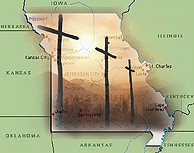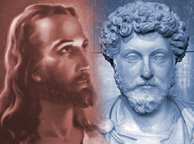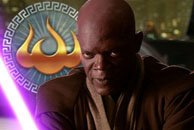
As you may have heard, Missouri legislators have recently introduced a house resolution that proclaims a recognition of the "Christian God" among other things. Some are calling this a declaration of Christianity as Missouri's official state religion. But that's not really fair.
Two things about this resolution: (1) It's just a resolution, a statement, with no force of law, and (2) Nowhere in it does it proclaim Christianity as an 'official religion'.
Having said that, the resolution is still a horrible monstrosity that neglects history, facts, reason, and the basics of decent modern government. It also exhibits an extreme ignorance and/or willful political deviousness on the part of those who supported it. Fortunately, many religious folks understand the dangers of the government defining their religion and are speaking out, as can be read in
this article.
Some supporters have said that the resolution really isn't that bad if people were to actually read what it says; so I will do so. The following is the exact wording of the proposed resolution as
found here, with my comments...
SECOND REGULAR SESSION
House Concurrent Resolution No. 13
93RD GENERAL ASSEMBLY
4572L.02I
Whereas, our forefathers of this great nation of the United States recognized a Christian God and used the principles afforded to us by Him as the founding principles of our nation; and
Well there's no doubt, of the 56 signers of the Declaration of Independence, the 39 signers of the Constitution, the 16 non-signing delegates to the Constitutional convention, and others, that many of them were indeed Christians.
But when we look at the major figures, especially those who penned the bill of rights, we see a lot of non-Christians. Even, as in the case of
Thomas Jefferson for example, explicitly stating that Jesus is not divine. This would preclude Jefferson's Jesus from being a part of the Trinity, and therefore preclude Jefferson from recognizing a Christian God - and Jefferson's not the only one.
I tend to agree with the Christians at the Quartz Hill School of Theology, who have an excellent outline showing why the Founders were not Christians, and of the importance of separation between church and state on
this webpage. Their home page is
here and you can click the middle top tab "doctrinal statement" if you doubt their Christianhood. Back to the resolution...
Whereas, as citizens of this great nation, we the majority also wish to exercise our constitutional right to acknowledge our Creator and give thanks for the many gifts provided by Him; and
There is already a right for both the majority and the minority to acknowledge creators and giver thanks to them. However, the impropriety arises when it comes to attempts to do that 'officially' through the political machinations of the state. One key problem of the writers of this is their inability or unwillingness to understand that in a diverse society with equal rights for all, the "majority" is not the definer of things when it comes to protected freedoms. In those cases, who is in the majority and who is in the minority is (or should be) mere happenstance.
Whereas, as elected officials we should protect the majority's right to express their religious beliefs while showing respect for those who object; and
How is this resolution 'protecting' anything that isn't already legally protected? Expression of religious belief is already protected for all, and there certainly is no need to protect a "majority's right". This is nothing more than an imposition by the majority, so the hollow phrase "while showing respect for those who object" is meaningless and oxymoronic. The very notion of this proclamation is a slap in the face to those of minority beliefs - an implication that they are less than full and equal citizens. Rather than a "protection", the above statement is designed to shift the perspective of "who is right" so as to prepare the social arena for future, more solid, legislative efforts.
Whereas, we wish to continue the wisdom imparted in the Constitution of the United States of America by the founding fathers; and
And what is that wisdom? Is it the wisdom that nowhere in the Constitution is God mentioned (and that this exclusion was both conscious, intentional, and hotly debated)? Or perhaps the wisdom that in two places the separation of church and state is explicitly prescribed. In Article IV no religious tests for office are allowed and in the First Amendment the Congress is barred from making laws which support or oppress any religion. Yes, I'd say that is wise, and the above certainly is not 'continuing the wisdom' imparted in the Constitution.
Whereas, we as elected officials recognize that a Greater Power exists above and beyond the institutions of mankind:
It's fine to recognize that as individuals, but not as "elected officials". What's more dangerous is that proclamations such as these are usually followed with attempts to define what it is this 'greater power' wishes or demands, thus making the speakers the stand-in mouthpiece for the alleged greater power. The legislators who supported this seem grossly unaware of these dangers.
Now, therefore, be it resolved by the members of the House of Representatives of the Ninety-third General Assembly, Second Regular Session, the Senate concurring therein, that we stand with the majority of our constituents and exercise the common sense that voluntary prayer in public schools and religious displays on public property are not a coalition of church and state, but rather the justified recognition of the positive role that Christianity has played in this great nation of ours, the United States of America.
And then we finally come to the "therefore" only to see something which already exists? Voluntary prayer is already allowed in every public school in the United States, and has never been abridged or threatened. Religious displays on public property are also allowed by Supreme Court rulings, provided that those of other religions are allowed to place theirs in the same area.
So, this grotesque violation of church/state separation has been created only to proclaim a right which has been consistently upheld and already enjoyed to this day? Again, I would submit that this proposed resolution is merely a preparatory document, designed to alter social assumptions so that future enforceable legislation is more likely to pass. This underhanded tactic is enough to be against such a proclamation, if it weren't for the fact that the thing itself is already a violation of the principles of political decency.
As you can read in the stltoday article I linked to above, not all religious people or Christians are filling their time with relentless attempts to have their religion take control of the political power in this country. Several more reasonable and educated Christians have spoken out against these attacks on Church/State separation because they understand the dangers that government involvement can have on a religious faith. The wall protects both entities, and its a shame that more don't understand this.
Americans United for Separation of Church and StateSTLToday Article on Missouri proposed resolutionGovernment page with the proposed resolutionQuartz Hill School of TheologyWikipedia article on Thomas Jefferson
 The Center for Inquiry is a Secular Humanist group who, among other things, are associated with Prometheus Books and Free Inquiry Magazine; both high in quality and interesting content.
The Center for Inquiry is a Secular Humanist group who, among other things, are associated with Prometheus Books and Free Inquiry Magazine; both high in quality and interesting content.





